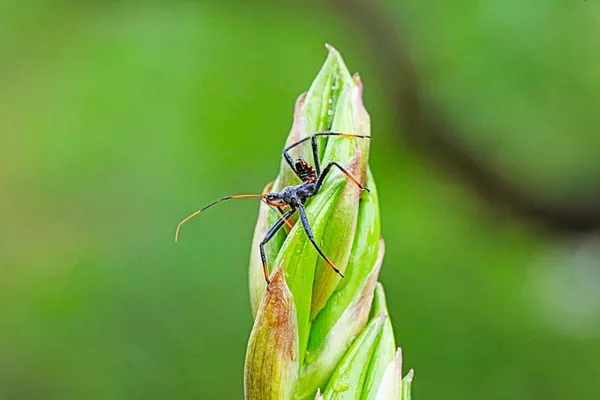Yucca plants, known for their striking appearance and adaptability, are a common sight in gardens, landscapes, and indoor settings. These hardy plants have been a favorite among gardeners and horticulturists for their low-maintenance characteristics and remarkable growth potential. In this article, we will delve into the fascinating world of Yucca plants and explore just how big these plants can grow, shedding light on the factors influencing their growth, and tips for nurturing these botanical beauties.
The Versatile World of Yucca Plants
Yucca plants are a diverse group of succulent plants belonging to the Agavaceae family. They are native to the arid regions of North and Central America, making them perfectly adapted to survive in harsh, desert-like conditions. These plants are characterized by their sword-shaped leaves and distinctive rosette growth pattern. While there are around 40 recognized species of Yucca, the most common ones cultivated by gardeners and enthusiasts include Yucca filamentosa, Yucca gloriosa, and Yucca elephantipes (commonly known as the spineless yucca).
Yucca plants are versatile in their applications. They can thrive both indoors and outdoors, and their size can range from small ornamental varieties suitable for tabletops to large garden focal points. To understand how big Yucca plants can grow, it’s essential to consider the various factors influencing their growth.
Factors Influencing Yucca Plant Growth
Species and Varieties:
The growth potential of Yucca plants varies greatly depending on the species or variety. Some Yucca species are naturally more compact and petite, making them ideal for indoor settings or small gardens. On the other hand, certain species, such as Yucca rostrata or Yucca elephantipes, can grow into sizable, tree-like specimens, reaching heights of 20 to 30 feet or more in optimal conditions.
Climate and Location:
Yucca plants are highly adaptable and can grow in a wide range of climates, from hot and arid deserts to more temperate regions. However, their growth rate and size can be influenced by local climate conditions. In warm, sunny, and arid areas, Yucca plants tend to grow faster and larger. Cold and wet climates may limit their growth and make them more susceptible to damage.
Soil Quality and Drainage:
Yucca plants thrive in well-draining soils. Their roots are sensitive to excess moisture, which can lead to root rot. To support healthy growth, plant Yuccas in sandy or loamy soils with excellent drainage. Adequate soil quality and proper drainage can help Yucca plants develop robust root systems, which, in turn, encourages bigger and healthier growth.
Sunlight Exposure:
Yucca plants are known for their love of sunlight. They require plenty of direct sunlight to flourish. Inadequate sunlight can lead to stunted growth and smaller plant sizes. For optimal growth, position your Yucca plant in a location where it receives at least six hours of direct sunlight per day.
Watering Regimen:
Yucca plants are drought-tolerant, and overwatering can be detrimental to their growth. It’s best to let the soil dry out between watering sessions. In their native desert habitats, Yuccas can go weeks or even months without rainfall. By simulating these conditions, you can promote larger, healthier Yucca growth.
Fertilization:
Proper fertilization can significantly impact the growth of Yucca plants. Fertilize your Yucca sparingly, using a balanced, slow-release fertilizer. Over-fertilizing can lead to excessive leaf growth at the expense of the plant’s overall size.
Pruning and Maintenance:
Regular pruning and maintenance can encourage healthy and robust Yucca growth. Trimming dead or damaged leaves, removing spent flower stalks, and thinning overcrowded foliage can promote better air circulation and allow the plant to direct its energy towards new growth.
The Potential for Giant Yucca Plants
When provided with the right conditions and care, some Yucca species have the potential to grow into sizable specimens that command attention and admiration. Here are a few examples of Yucca species that can reach impressive sizes:
Yucca elephantipes (Spineless Yucca):
One of the most popular Yucca species for indoor and outdoor cultivation, Yucca elephantipes, has the potential to grow up to 30 feet tall when planted in optimal conditions. This striking, tree-like Yucca is a favorite among gardeners for its elegant appearance and relatively rapid growth.
Yucca rostrata (Beaked Yucca):
Yucca rostrata is a magnificent species known for its striking blue-green leaves and slender trunk. In ideal conditions, it can grow up to 15 feet tall. This species adds a dramatic element to landscapes, making it a standout feature in gardens and xeriscapes.
Yucca baccata (Banana Yucca):
Banana Yucca is a unique Yucca species known for its fruit-bearing capabilities. While it doesn’t grow as tall as some other Yucca species, it can spread out and form clumps that can reach up to 10 feet in diameter, making it an impressive and visually interesting addition to your garden.
Nurturing Your Yucca Plant for Optimal Growth
To encourage your Yucca plant to achieve its maximum growth potential, consider the following tips:
Proper Planting: Choose a suitable location with well-draining soil and ample sunlight exposure.
Watering: Water your Yucca sparingly, allowing the soil to dry out between waterings.
Pruning: Regularly remove dead or damaged leaves, flower stalks, and spent foliage to promote new growth.
Fertilization: Use a balanced, slow-release fertilizer sparingly to support healthy growth.
Protection: In colder climates, protect your Yucca from extreme temperatures and excessive moisture.
Conclusion
Yucca plants are remarkable for their adaptability and growth potential. Their size can vary greatly, from small ornamental varieties to majestic, tree-like specimens. Understanding the factors that influence their growth, including species, climate, soil quality, sunlight exposure, and maintenance, is essential for nurturing these botanical beauties to their full potential. With the right care and attention, your Yucca plant can become a striking focal point in your garden or an eye-catching addition to your indoor decor, showcasing the splendor of nature’s resilience and beauty.


